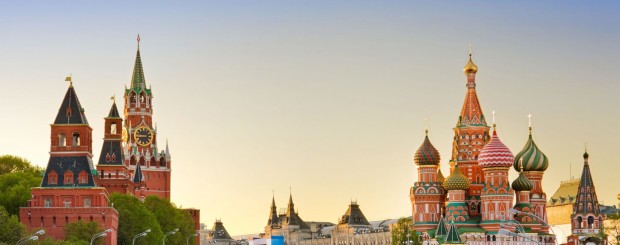Russia Travel Tips
Look After Your Migration Card
Upon entering Russia, you’ll be issued with a migration card – either already filled in if crossing at one of Moscow’s major airports or otherwise blank, requiring it to be filled in (English is fine). The rather inconsequential-looking slip of paper is more important than you think. You will be needing it to register at hotels and to leave the country – it’s valuable, so don’t lose it. Every foreign tourist is required to be registered in Russia within 7 working days of arriving. Normally, this is done automatically at any hotel where you stay, but if you’re staying with friends or family, a trip to the local post office will be necessary in order to take care of this.
VISA:
Do not forget to apply for a Russian Visa at any Russian Embassy of your country before you come to Russia. Normally Russian travel agencies and hotels provide a Visa Support letter necessary for a Russian Visa application. Please, contact the Russian Embassy of your country for more information. If during your tour to Russia you plan to visit Finland, Estonia, Ukraine or another neighboring country and come back to Russia, do not forget to apply for double entry Russian Visa.
DOCUMENTATION:
Once you are in Russia, it is a good idea to carry a photocopy of your passport with you at all times. Also, leave your passport number and other information with a family member in case the passport is stolen or misplaced. In each city you visit in Russia, your visa must be validated. The hotel you are staying at will be able to perform this service. A small registration fee can be imposed (from $0.5 US to about $5 US) and normally it takes from a few minutes to a day to have your visa registered. If you come to Russia as a guest, not as a tourist, and stay at a Russian home, you should be registered at a police office.
WATER:
The quality of the water in Russia varies from place to place. It is recommended to drink and brush your teeth with bottled water. Also, try to avoid ice, raw foods and vegetables.
ELECTRICITY:
The electrical current in Russia is 220V AC. The European standard 2-prong plug is used. Be sure to bring a converter with you, as it is difficult to purchase in Russia
CRIME:
Since the collapse of Communism, crime has increased in Russia. However, it is still safer than many American cities. As a precaution, it is best not to flaunt valuable items. Also, avoid walking alone at night through parks and in outer city streets. Finally, carry currency in a travel money holder. Pick pocketing is not uncommon in crowded markets and in tourist areas.
TAXIS:
Taxi fares are negotiated before you begin traveling to your destination. Avoid taking unlicensed cabs, as these drivers generally wait for taking advantage of foreigners. Also note that driving from (or to) airport is quite expensive. It is safer and cheaper to order airport and train station transfers in advance.
EXCURSIONS:
We advise that you should order your excursions, theater tickets and tours with your travel company before you come to Russia. The hotel rates for these services depend on the category of the hotel and they are often higher than travel companies’ prices for the same services.
TIPPING:
Tipping is increasingly expected at restaurants. Tips should be between 10 and 15%.
CURRENCY
All prices are generally quoted in Russian rubles. You may exchange currency at hotels, banks, and currency exchange kiosks. Traveler’s checks are hard to cash. Credit cards are accepted in most places that work with foreign tourists. Some may turn down American Express. Visa and MasterCard are known, hence — more widely honored. ATM machines are widely available in major cities, but note: they do not have letters on the key pad, so if your PIN includes letters, do remember them as digits! Do not exchange currency in the streets if a native Russian offers to sell you rubles. Always carry some currency with you because many shops do not accept credit cards. Remember to change your rubles before you leave Russia. Most exchange office outside Russia will not change rubles.
TELEPHONES:
Despite the recent rapid improvements in the telecommunications infrastructure, telephone service is expensive in Russia.
– If you are away from your hotel, find any pay phone, which are usually located at Metro (subway) stations. The phones accept rouble coins, special metro coins or telephone cards. The telephone cards can be purchased at newsstands and some stores.
INTERNET:
Most big hotels offer its guests Internet access for a fee. There are also quite cheap internet cafes in big cities.
MEDICAL CARE:
If you take any prescription medication, be sure to bring enough of it for the entire duration of your trip, as some medications are not available in Russia. These medicines are usually sold in pharmacies, however the labels are in Russian and most store clerks do not speak English.
Contact your health insurance company beforehand to find out what your insurance plan offers in case of emergency. Many insurance providers offer specialized riders which can cover emergency evacuation. We do recommend buying a travel insurance. Lets Go Travels & Tours provide travel insurance.



